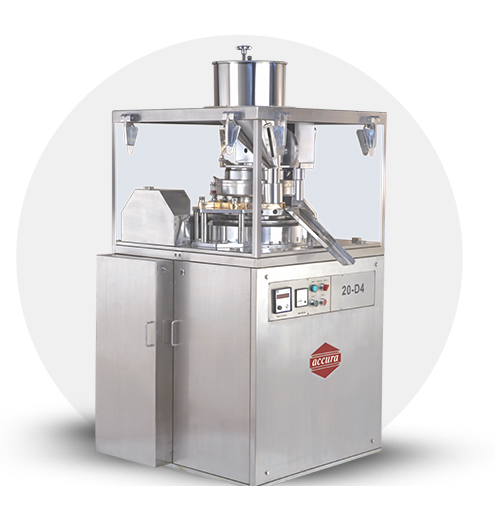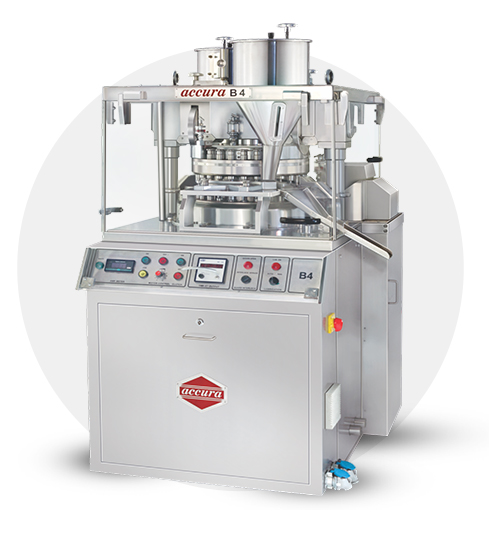The pharmaceutical industry has witnessed significant growth in recent years, with the demand for tablets increasing across the globe. To meet this growing demand, tablet press machine manufacturers have been pushed to innovate and scale their production processes. As tablet production needs become more complex and diverse, tablet machine manufacturing has had to evolve to meet the new challenges. This article explores how manufacturers are addressing the growing supply requirements for tablet press machines and the strategies they are employing to stay ahead in a competitive market.
The Role of Tablet Press Machines in Pharmaceutical Manufacturing
Tablet press machines are at the heart of modern pharmaceutical production. These machines are responsible for converting powders and granules into solid tablets, which are used in various forms of medication and dietary supplements. The need for efficient, high-quality tablet production has led to advancements in tablet press technology, resulting in faster production times, increased efficiency and enhanced product quality.
Tablet presses are essential for ensuring that each tablet is of consistent size, shape and dosage. The precision required in the pharmaceutical industry means that manufacturers must invest in reliable, high-performance equipment. As the demand for tablets increases globally, tablet machine manufacturers are under pressure to meet both the volume and quality standards required by the industry.
Rising Global Demand for Tablet Presses
The global demand for pharmaceutical products, particularly tablets, has been on the rise due to factors like an aging population, increased access to healthcare and growing health awareness. This trend has led to a surge in the need for tablet press machines, as pharmaceutical companies strive to meet market demand efficiently and effectively.
Several factors are contributing to this increased demand:
- Increased consumption of medications: Tablets are commonly used in pharma products, driving demand for larger tablet production volumes.
- Rising healthcare costs: Tablets offer a cost-effective method of drug delivery, which makes them increasingly popular in both developed and developing markets.
As these factors continue to shape the pharmaceutical landscape, tablet press machines must evolve to support higher production capacities without compromising on quality.

How Manufacturers are Scaling Production to Meet Demand?
To meet the growing supply needs for tablet press machines, manufacturers have implemented several strategies. These approaches focus on improving efficiency, expanding production capabilities and ensuring that each machine meets the high standards required by the pharmaceutical industry.
Increased Automation in Tablet Machine Manufacturing
One of the key strategies that tablet machine manufacturers are using to meet the growing demand is increased automation in the production process. Automation allows for faster production times, reduced labor costs and improved consistency in tablet quality. Automated systems can manage complex tasks, such as adjusting tablet weight, hardness and other parameters in real-time.
- High-Speed Tablet Presses: Automated tablet press machines can produce tablets at speeds of thousands per minute, increasing overall throughput.
- Programmable Control Systems: These systems allow manufacturers to fine-tune the parameters for tablet production, ensuring that each tablet meets the required specifications.
- Continuous Manufacturing: By integrating automated tablet presses with other automated equipment, manufacturers can create continuous production lines that run 24/7, significantly increasing output.
Improved Design and Engineering of Tablet Press Machines
As the pharmaceutical industry evolves, tablet press machine manufacturers are investing in advanced engineering and design improvements. Newer tablet press designs are more efficient, easier to maintain and capable of handling a wider range of tablet formulations.

- Flexible Tablet Presses: Modern tablet pressesare designed to accommodate various tablet sizes, shapes and formulations, giving manufacturers the flexibility to produce different types of tablets on the same machine.
- Compact and Modular Designs: Smaller, more compact tablet presses are becoming popular in facilities with limited space, allowing for more efficient use of floor space while still maintaining high production output.
- Enhanced Durability: With increased demand for high-volume production, tablet press manufacturers are focusing on creating machines that are more durable and can withstand long production cycles without compromising on performance.
Customization of Tablet Press Machines for Specific Needs
To meet the diverse needs of the pharmaceutical industry, manufacturers are offering more customizable tablet press machines. These machines can be tailored to specific tablet production requirements, whether for high-potency drugs, tablets with complex coatings or multi-layer tablets.
- Tablet Coating Compatibility: Some modern machines are designed to work seamlessly with tablet coating machines, enabling manufacturers to coat tablets in a single integrated process.
- Multi-Layer Tablets: Advanced press machines are now capable of producing multi-layered tablets, which are particularly useful for controlled-release formulations.
Focus on Quality Control and Compliance
As regulatory requirements become stricter, tablet machine manufacturers are ensuring that their machines comply with current Good Manufacturing Practices (cGMP). This is especially important as the pharmaceutical industry is under constant scrutiny from health authorities like the FDA and EMA. Ensuring that machines meet these standards helps manufacturers avoid costly regulatory setbacks and maintain high-quality production standards.
- Real-Time Monitoring: Modern tablet press machines come equipped with real-time monitoring systems that track every aspect of tablet production, ensuring that any issues are identified and addressed immediately.
- Built-in Quality Assurance: Many tablet presses now feature integrated quality control systems, such as automatic weight and thickness checks, to ensure that every tablet meets the required specifications.
Addressing Challenges in Scaling up Tablet Machine Manufacturing
Despite the advancements in tablet machine manufacturing, scaling up production to meet increasing demand comes with its own set of challenges. Tablet press machines must not only be able to produce large quantities of tablets but also maintain the highest quality standards, which can be difficult to achieve in high-volume environments.
Maintaining Consistency and Precision at High Volumes
As production volumes increase, ensuring that every tablet is produced with the same level of precision becomes more challenging. Manufacturers are investing in advanced control systems that allow for real-time adjustments to tablet parameters, ensuring consistency even at higher production speeds.
Managing Increased Production Costs
While automation helps reduce labor costs, the cost of raw materials, machine maintenance and upgrades can still pose significant challenges. Manufacturers must find ways to streamline their operations and reduce waste to ensure that production remains cost-effective while meeting the increasing demand for tablets.




